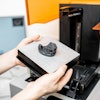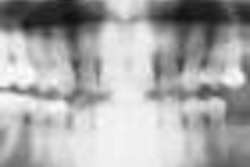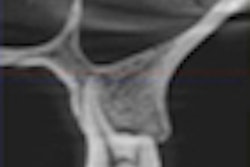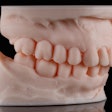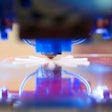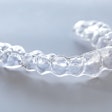Leaded glasses worn by patients undergoing cone-beam CT (CBCT) scans can significantly reduce the amount of radiation absorbed by the eyes, according to a new study in Oral Surgery, Oral Medicine, Oral Pathology, Oral Radiology, and Endodontology (October 2011, Vol. 112:4, pp. 502-507).
Leaded eyeglasses are one method for reducing the risk of radiation cataract development following low-dose radiation exposures, according to the study authors, from Memorial Sloan-Kettering Cancer Center, Columbia University, and State University of New York.
They conducted dose measurements on three anthropomorphic phantoms -- male, female, and juvenile male -- with the Imtec cone-beam CT system (Ardmore). They used two different scanning techniques with identical machine parameters (120 kVp, 3.8 mA, 7.8 sec). Scans were performed with and without leaded glasses and repeated three times.
"Leaded glasses worn by adult and pediatric patients during CBCT scans may reduce radiation dose to the lens of the eye by as much as 67% (from 0.135 ± 0.004 mGy to 0.044 ± 0.002 mGy in pediatric patients)," the researchers concluded.



